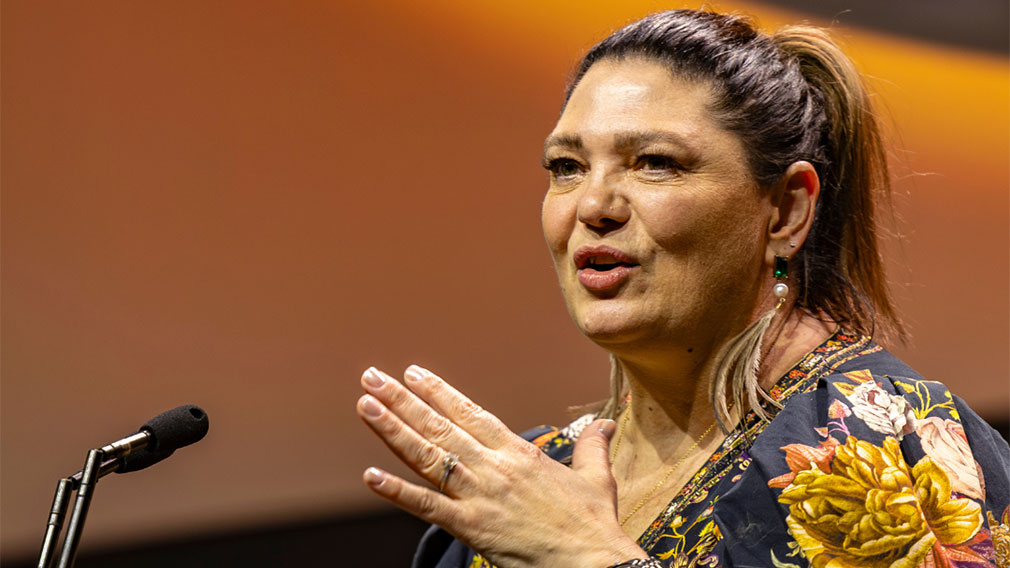‘A stubborn scam’: Online romance red flags

Australians lost at least $131m to romance scams in 2020, according to the ACCC. (Getty)
As people live more and more of their lives online, more and more romances are also blooming on the internet.
But for some unlucky people, the person they’re pining over or in love with doesn’t exist: they’re being scammed.
“Romance scams are definitely the most stubborn type of scam, because people are emotionally invested,” says Westpac’s head of fraud Ben Young.
“We have algorithms to try to detect people who are being scammed, but even if we detect them, talking them out of a romance they may have been involved in for six months is incredibly challenging, you’re crashing down their whole reality at that point.”
Romance scams have become business for scammers, even more so during the pandemic.
According to the Australian Competition and Consumer Commission, Australians lost at least $851 million to scams in 2020, with romance scams costing $131m, second only to investment scams. In fact, “romance baiting” – when victims are contacted on a dating app before usually being lured into an investment scam on a different platform – emerged as a new type of scam last year targeting cohorts “which in the past have not typically suffered high losses” to being duped in a similar way, the ACCC’s 2020 report on scams activity found.
The ACCC’s Scamwatch website shows it’s already been alerted to almost $50m of dating and romance scams.
Following Scams Awareness Week this month, Young says a major issue is that while people are often woken up to scams by friends or family, romance scammers flourish by targeting more isolated people. It comes as more Australians embrace the idea of finding partners online, an ABC survey in 2019 finding it was the most common way relationships bloomed since 2010.
“The six words I like the most are, does this sound right to you? (But) if there’s no one to ask that question, you’re more vulnerable, and there can be a wilful blindness to the fact that this is not real,” Young says.
.png)
“Some know in the back of their mind, because they’ve been in a relationship for months and months, and the other person is always coming up with a reason why they can’t meet face to face, can’t video chat, the stories must be really stretching credulity, but in their mind, they think, ‘I can’t let this go’.”
Not for profit identity and cyber support service IDCARE says it happens to everyone, receiving reports about relationship scams from all ages, genders, cultural backgrounds, education and income levels. It typically ends with victims sending money to scammers, IDCARE data showing the average in the first three months of 2021 was $82,000 and individual losses up to $2m.
Despite advances in technology and widespread adoption of video chat tools during COVID, Young says scammers get creative about why they can’t reveal their identities via a platform like Zoom, warning to be alert for stories about “people who live on oil rigs, or someone in the defence forces who’ve gone on manoeuvres”.
“After a sufficient amount of grooming, the scammer will usually invoke some crisis, there’s some medical crisis or some issue with customs, or a family member has had some sort of medical emergency and they can’t afford the hospital bills,” he says.
“We see a lot with puppy scams as well, it’s very easy to harvest photos online…but if you say, ‘can we do a video chat so you can show me the puppy and how it’s been bred and the conditions that it’s kept in’, it’s much more difficult to fake that.”
Sadly, Young adds that romance scam victims sometimes end up not only losing their own money, but unwittingly help the scammer sting someone else.
“They might say they need you to transfer some money to their sister or their cousin for them. The money arrives in your account and you send it on. But really, the money is from another victim who thinks they’re helping someone or buying something, and you’ve been used as a money mule,” he says.
How to protect yourself from scams:
- Whether it’s a romance, a puppy or a used car, ask to video chat. It’s much harder for scammers to fake.
- Use Google’s reverse image search to see if the person you’re talking to is using a public image from the internet.
- Be aware that scammers can doctor images, to make it seem like a person is holding a newspaper with today’s date, or a sign with your name on it.
- Be wary if someone tries to coach you not to tell your bank about a transaction.
- If you have elderly or vulnerable friends or relatives, start a conversation about scams with them, to try to make sure they’re not being targeted.




